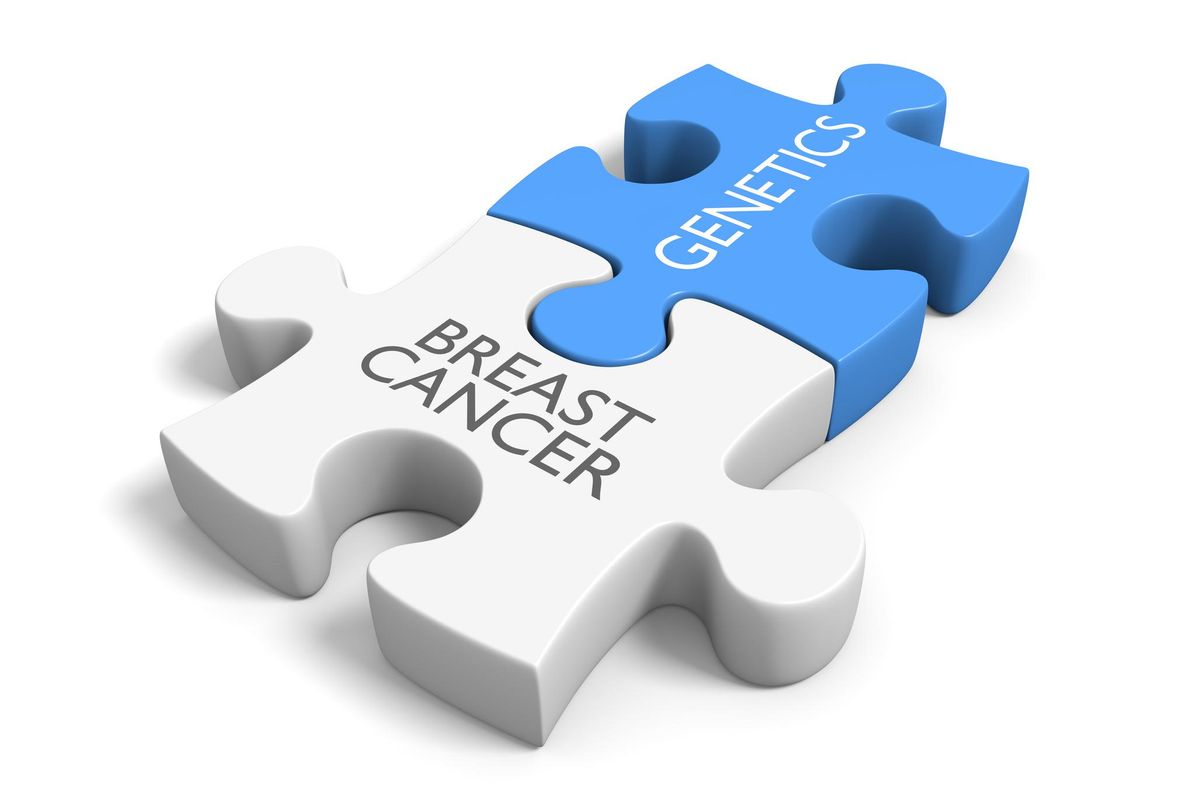About 5% to 10% of breast cancer cases are hereditary, meaning they come from gene mutations (changes) passed on from a parent. But even if you have a family history, that doesn't mean you'll definitely get cancer. Here's a breakdown of the basics about genetics and breast cancer.
- Most inherited cases of breast cancer are associated with mutations in the BRCA1 (breast cancer gene one) and BRCA2 (breast cancer gene two) genes.
- Everyone has the BRCA1 and BRCA2 genes. Their job is to repair cell damage and keep breast, ovarian and other cells growing normally.
- An increased risk of breast and/or ovarian cancer occurs when some of these genes contain mutations that cause cells to grow abnormally.
- On average, a woman has a 1 in 8 chance of developing breast cancer by age 80, but a woman with a BRCA1 or BRCA2 gene mutation has up to a 7 in 10 chance of developing breast cancer by age 80. She's also more likely to be diagnosed with breast cancer at a younger age and have cancer in both breasts.
- Having a BRCA1 or BRCA2 mutation does not always mean you will be diagnosed with breast cancer.
- If only one family member has a genetic mutation linked to breast cancer, it does not mean all family members will have it. The risk increases as the number of family members with breast cancer increases.
- Some inherited gene mutations are associated with an increased risk of developing breast cancer, but they are much less common than BRCA1 and BRCA2.
- Most women who develop breast cancer did not inherit a genetic mutation linked to breast cancer and have no family history of the disease.
- Some people have a higher risk factor for a BRCA mutation than others. A family history of breast cancer or ovarian cancer, Ashkenazi Jewish (Eastern Europe) heritage, and a personal history of breast cancer before 50 or triple-negative breast cancer are just some of the factors that may indicate an increased risk.
- Genetic tests are available to see if you have any BRCA mutations. A genetic counselor, along with your healthcare provider, can help you decide whether testing will be helpful to you based on your personal and family health history.
- While you cannot change your family history of breast cancer or your genetics, you can take steps to lower your risk with healthy lifestyle choices and talk to your healthcare provider about options for early detection.
This resource was created with support from Daiichi Sankyo and Merck.
From Your Site Articles
- You Can’t Choose Your Genes - HealthyWomen ›
- The Importance of Understanding Your Family History of Breast Cancer - HealthyWomen ›
- WomenTalk: Breast Cancer: What You Need to Know - HealthyWomen ›
- Genetic Counseling: What You Need to Know - HealthyWomen ›
- Breast Cancer: What You Can Do to Lower Your Risk - HealthyWomen ›
- Learn What BRCA Testing Is and Who Should Get BRCA Testing - HealthyWomen ›
- True or False? Breast Cancer - HealthyWomen ›
Related Articles Around the Web






